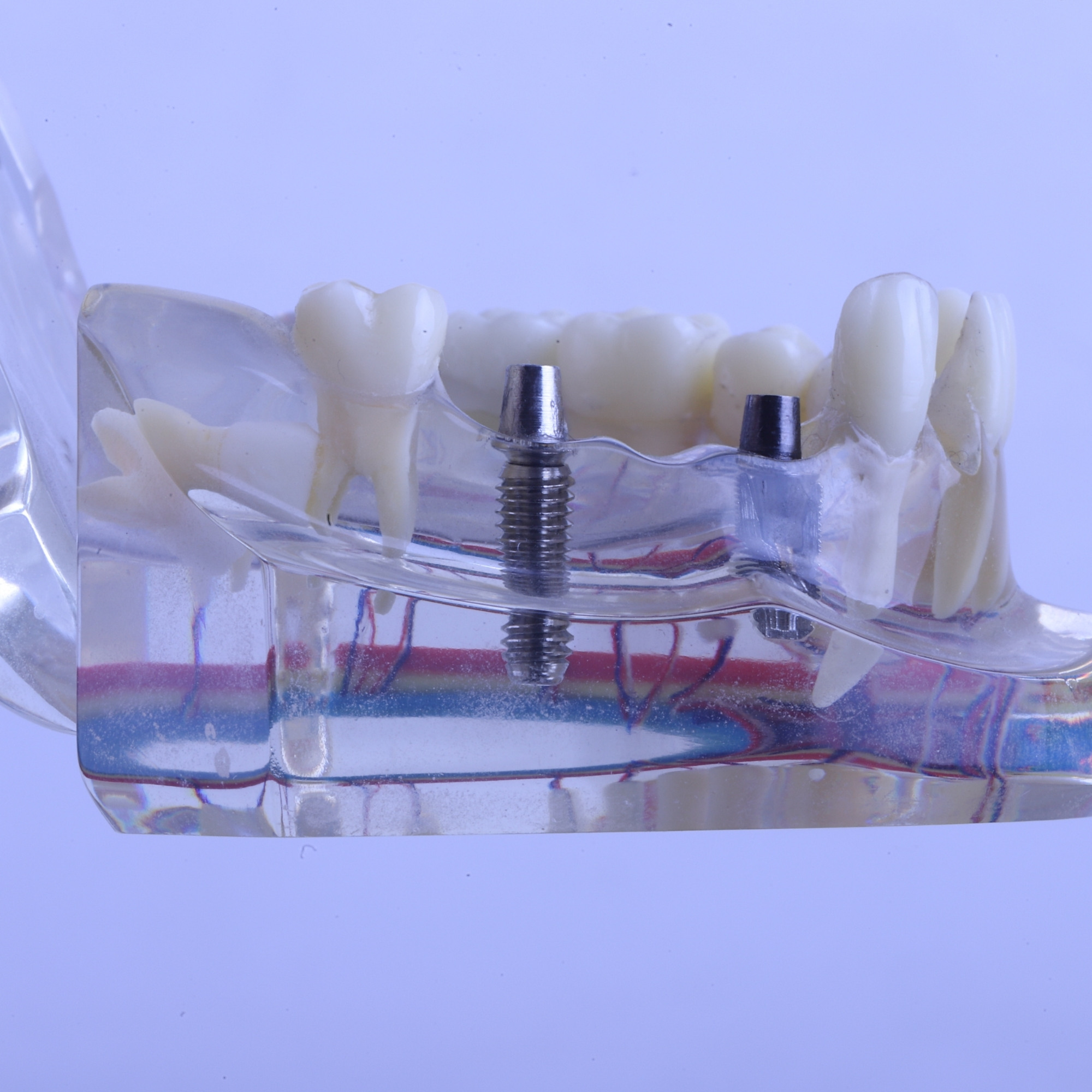Implant Treatment
Dental Implant Treatment
In terms of oral and dental health, single, partial, or full tooth loss is a highly important issue, both aesthetically and functionally. Thanks to modern dental technology, implant treatments provide highly satisfactory results in such cases.
What is a Dental Implant?
A dental implant is a screw-like system made of titanium, zirconium, or various alloys that is placed into the jawbone to replace missing teeth. Over time, it integrates with the bone structure.
In Which Cases Are Implants Used?
-
Single tooth loss
-
Multiple tooth loss
-
Full edentulism (complete tooth loss)
When Are Implants Not Recommended?
-
Pregnant individuals
-
Individuals who have not completed bone development
-
Patients undergoing radiotherapy
-
Individuals with certain systemic diseases
-
Heavy alcohol or tobacco users
What Are the Advantages of Implants?
-
Durable and long-lasting
-
Adjacent teeth are not harmed
-
More comfortable compared to traditional treatments
-
Closest solution to natural teeth
-
Restores aesthetics, speech, and chewing functions
How is the Implant Consultation Done?
-
The patient's general health condition is evaluated
-
Additional tests may be requested if necessary
-
Based on radiographic assessment, jawbone density and anatomical structures are evaluated to create a treatment plan
How is the Implant Surgery Performed?
-
The procedure is done under local anesthesia
-
A socket is prepared in the jawbone
-
The implant is inserted into the socket by screwing it in
Is the Procedure Painful?
No. Since local anesthesia is used, no pain is felt during the surgery.
How Long Does the Surgery Take?
-
For a single implant: approx. 4–8 minutes
-
For multiple implants: 20–45 minutes
Is Implant Treatment Expensive?
Considering its success rate, longevity, comfort, and benefits, implant treatment is a highly cost-effective option.
Post-Operative Care Instructions
Nutrition
-
Do not eat or drink anything for the first two hours
-
Avoid hot food and beverages for the first 24 hours
-
Consume soft and cold foods; avoid seeded or grainy foods
-
Do not chew on the surgical side
Bleeding
-
Use the gauze provided to control bleeding for about 30 minutes, replacing if necessary
-
Mild bleeding is normal on the first day
-
Avoid spitting and rinsing excessively for the first 24 hours
-
Avoid disrupting the clot with repeated spitting motions
Brushing Teeth
-
Do not brush your teeth the evening after the surgery
-
Rinse your mouth twice daily with antiseptic mouthwash or saltwater for two weeks
-
Rinsing should last one minute; avoid eating or drinking for 30 minutes afterward
Smoking and Alcohol
-
Avoid smoking and alcohol for at least the first 24 hours
-
Refrain from these habits until full healing occurs, as they can negatively affect recovery
Medication
-
Take all prescribed medications as directed to prevent pain and infection
-
Avoid blood-thinning medications like aspirin until healing is complete
Cold Compress
-
Swelling, bruising, or hematoma may occur on the cheeks or under the eyes and typically resolves within 10 days
-
To reduce swelling, apply a cold compress on the operation area at intervals throughout the first day
Stitch Removal
-
Stitches are usually removed 10–14 days after surgery
-
If dissolvable stitches are used, a follow-up appointment after 3 weeks may be scheduled for evaluation
Additional Notes
-
Avoid exercise or physical activity for the first 24 hours
-
Do not stretch your mouth or touch the area with fingers or foreign objects




